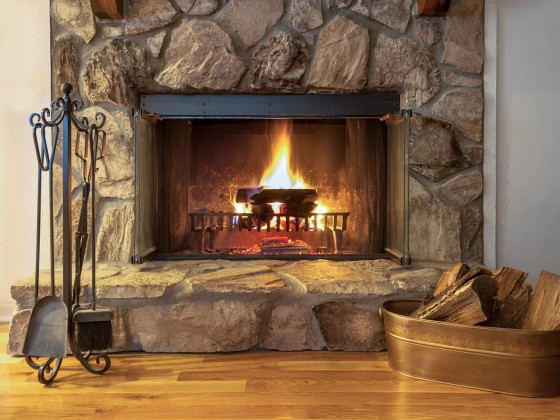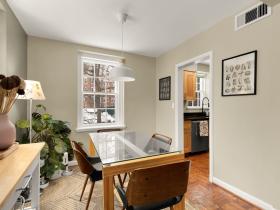What's Hot: Cash Remained King In DC Housing Market In 2025 | 220-Unit Affordable Development Planned Near Shaw Metro
 What Does Being an ANC Commissioner Entail
What Does Being an ANC Commissioner Entail
✉️ Want to forward this article? Click here.
Readers have likely seen references to various ANCs pop up regularly on UrbanTurf. ANCs, or Advisory Neighborhood Commissions, serve as a useful intermediary between residents and District agencies. Now that the city’s district ward boundaries have been redrawn, quite a few ANC seats have opened up and potential commissioners have four days to announce their desire to run. (The DC Board of Elections has a growing list of candidates, and you can find out if your neighborhood seat is open here.)
But what does it mean to be on an ANC?
Basically, ANC commissioners serve as the voice of the community. ANCs are hyperlocal political bodies: each of DC’s eight wards are divided into a handful of ANCs, which in turn are divided up into a number of Single Member Districts (SMD) comprising 2,000 residents, each represented by one commissioner. Once elected, commissioners serve two-year terms.
While, as the name suggests, ANCs advise rather than dictate, the city government is required by law to give the commission’s opinion “great weight.” Commissioners have a surprising amount of sway regarding the way neighborhoods develop. Developers building in a historic district generally visit the ANC for approval before asking for the official go-ahead from the Historic Preservation Review Board (HPRB), and anyone wanting to build something that varies slightly from the restrictions laid out by the zoning code will stop by the ANC before meeting with the Board of Zoning Adjustment (BZA). Commissioners have a chance to comment on the concept, design and size of developments going up around them, and developers often take their words seriously and revise before meeting with the official agencies. Individual business also stop by the ANC, and may enter into “voluntary agreements” regarding hours of operation, alcohol service or outdoor seating.
As is said, with great power comes great responsibility. A contrarian ANC could potentially hold up valuable development, and an overly lax one may turn allow their neighborhood’s commercial corridor to turn into a drunken mess, to the distress of residents.
“It is important to really listen and stay in touch with your constituents,” ANC 6B Commissioner Brian Flahaven told UrbanTurf. “While you may disagree with some on a particular case or issue, a commissioner should always make sure that all his/her constituents get a fair hearing.” Aside from gathering opinions from constituents, information can flow in the other direction: active commissioners can learn about what is going on in the neighborhood and the city and in turn inform their residents. Commissioners don’t need to come into the position with any background knowledge, but some knowledge of DC laws and restrictions will help.
So what is the time commitment? It varies, but at a minimum, there is a monthly evening ANC meeting. Most ANCs also have committees, for zoning and transportation, and sitting on one will yield another monthly meeting. Many commissioners also meet with neighbors, perhaps at neighborhood meetings, to get a feel for their opinions.
For those that don’t want to run, you can still have an impact. Residents who attend meetings may find that their voice has more power than they would have guessed. ANCs take resident opinions seriously, and the typically low attendance means your words will probably be granted more weight than they should proportionally receive.
Readers, do you ever attend ANC meetings?
See other articles related to: anc
This article originally published at https://dc.urbanturf.com/articles/blog/what_does_being_an_anc_commissioner_entail/5856.
Most Popular... This Week • Last 30 Days • Ever

Lincoln-Westmoreland Housing is moving forward with plans to replace an aging Shaw af... read »

The small handful of projects in the pipeline are either moving full steam ahead, get... read »

A report out today finds early signs that the spring could be a busy market.... read »

A potential collapse on 14th Street; Zuckerberg pays big in Florida; and how the mark... read »

A potential innovation district in Arlington; an LA coffee chain to DC; and the end o... read »
DC Real Estate Guides
Short guides to navigating the DC-area real estate market
We've collected all our helpful guides for buying, selling and renting in and around Washington, DC in one place. Start browsing below!
First-Timer Primers
Intro guides for first-time home buyers
Unique Spaces
Awesome and unusual real estate from across the DC Metro















